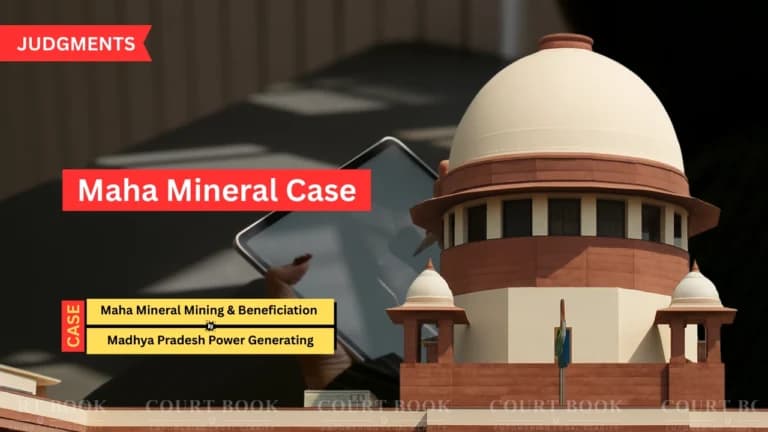In a significant ruling that could reshape the way tender conditions are interpreted, the Supreme Court on Tuesday set aside the Madhya Pradesh High Court’s decision that had upheld the disqualification of Maha Mineral Mining & Beneficiation Pvt. Ltd. from a major coal beneficiation contract. The bench, led by Justice Surya Kant and Justice Joymalya Bagchi, held that the company’s bid was unfairly rejected for non-submission of a joint venture (JV) agreement, even though the tender document never explicitly demanded it.
Background
The dispute traces back to May 2024, when Madhya Pradesh Power Generating Company Ltd. (MPPGCL) floated a tender for coal beneficiation and logistics services for the Shree Singaji Thermal Power Project. Maha Mineral Mining, along with other bidders, entered the fray. The Tender Evaluation Committee disqualified Maha Mineral on the grounds that it had not attached its JV agreement, despite the company producing a work certificate from the Maharashtra State Mining Corporation confirming its 45% partnership in Hind Maha Mineral LLP.
The High Court later upheld this disqualification, accusing the company of “suppression” of documents. During that time, another bidder-Rukhmai Infrastructure Pvt. Ltd.-was declared successful.
Court’s Observations
The Supreme Court took a different view. “Clause 5(D) does not mandate the submission of the JV agreement itself,” the bench observed. Instead, it said that the work execution certificate already provided sufficient proof of the company’s stake and experience. The judges noted that if the authorities had doubts, they were free to verify the certificate or seek clarification, rather than outright reject the bid.
On the High Court’s further finding-that Maha Mineral’s washery capacity was already tied up with Maharashtra State Mining Corporation-the apex court found fault. It pointed out that this ground had never been raised by the tender committee itself but appeared for the first time in written submissions by a rival bidder. “It was impermissible for the High Court to travel beyond the reasons given by the Committee,” Justice Bagchi remarked during the pronouncement.
Decision
The Supreme Court partly allowed the appeal. It quashed the High Court’s order and directed that the matter be reconsidered, but only on the limited issue of whether Maha Mineral had the required spare washery capacity under Clause 5(B) of the tender. The court remanded the case back to the High Court, asking it to decide within two months. Meanwhile, the validity of the work order granted to Rukhmai Infrastructure will depend on this fresh evaluation.
With this, the apex court signaled that tender conditions must be applied strictly as written, not interpreted with hidden requirements. The judgment could have ripple effects on future government bidding processes, especially where technicalities are used to shut out bidders.
Case: Maha Mineral Mining & Beneficiation Pvt. Ltd. vs. Madhya Pradesh Power Generating Co. Ltd. & Anr.
Appeal Type: Civil Appeal (arising from SLP (C) No. 1940/2025)
Date of Judgment: 9 September 2025















